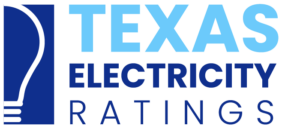Should You Pick a Less Than 12 Month Plan?

When shopping for an electric provider, you might notice that some of the cheapest rates come with contracts that last less than 12 months. These shorter plans, often around eight to ten months, can have appealingly low electricity prices. But they also come with both perks and trade-offs. Depending on your energy habits and timing, a shorter plan could help you lock in savings. Or they could expose you to higher rates later. Before signing, it’s important to weigh what works best for your situation.
The Upside of Less Than 12 Month Power Contracts
Flexibility is one major advantage of a less than 12 month plan. You can switch sooner without being locked into a long-term contract. That’s helpful if you think rates might go down after winter or if you plan to move in the next year.
Another upside is that shorter plans often have lower rates upfront. Retail electric providers may discount these terms to attract new customers. Plans with 8 and 10 month periods offer rates far below the prices advertised over the past few months.
The Downsides to Keep in Mind
The biggest drawback of a less than 12 month plan is uncertainty. Once your contract ends, you’ll need to shop again. The problem is that rates could be higher when it’s time to renew. If you forget to switch, your power company might roll you into a default or month-to-month rate, which can be much more expensive. Unless you’re Scrooge McDuck, you don’t want to be on a retailer’s default plan.
Another issue is seasonality. For example, a plan starting in November will end next summer, forcing you to renew during a period when Texas electricity prices tend to climb. That timing matters, especially for households with heavy air conditioning use.
Who Benefits Most from a Short Plan?
Shorter electricity plans make sense for renters, people planning to move soon, or anyone keeping an eye on energy market trends. They’re also useful for savvy shoppers who regularly compare rates and don’t mind switching plans once or twice a year. If you prefer to “set it and forget it,” a longer contract might be a better fit. And Texas Electricity Ratings has plenty of those for you!
Which Plan Offers the Best Deal?
If you think a shorter plan is best for your current situation, Frontier Utilities offers the cheapest one. The Frontier Saver Plus 8 plan boasts an average rate of 9.4 kWh at 1,000 kWh of usage. At that 1,000 kWh mark, the plan gives customers a $125 bill credit. Therefore, your typical usage should stay above 1,000 kWh for this plan to make sense for you.
Keep Your Power Costs Under Control
Choosing a less than 12 month plan can be a smart move for flexible customers who want short term savings. Just remember to mark your renewal date and compare offers before your contract ends. Staying proactive helps you keep your power affordable year-round. For more tips and to compare current Texas electricity plans, visit http://www.texaselectricityratings.com/electricity-rates.

